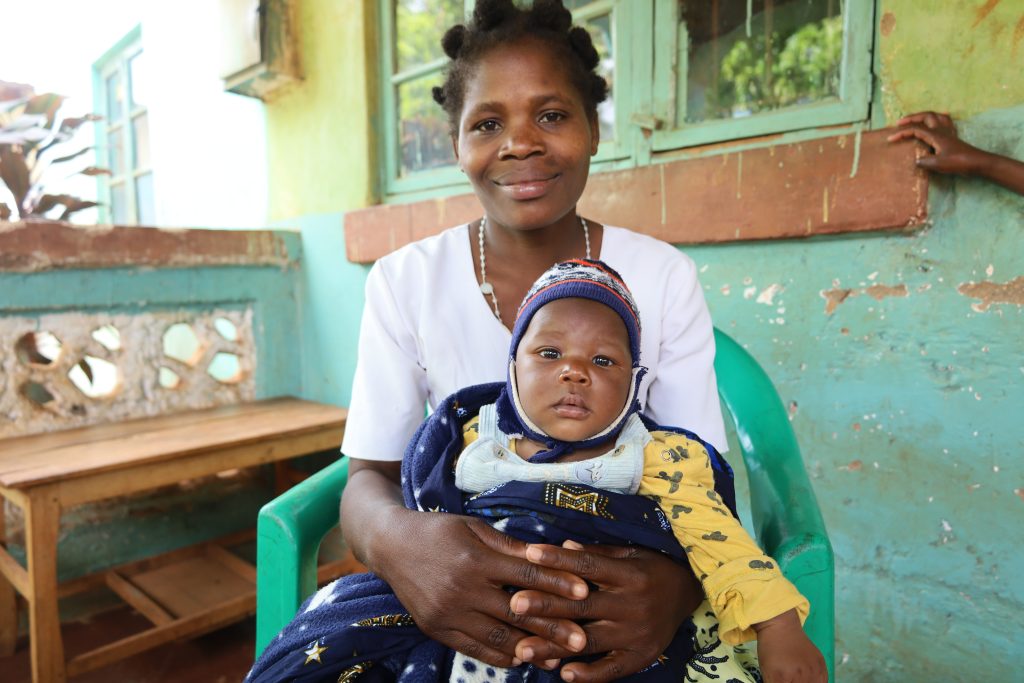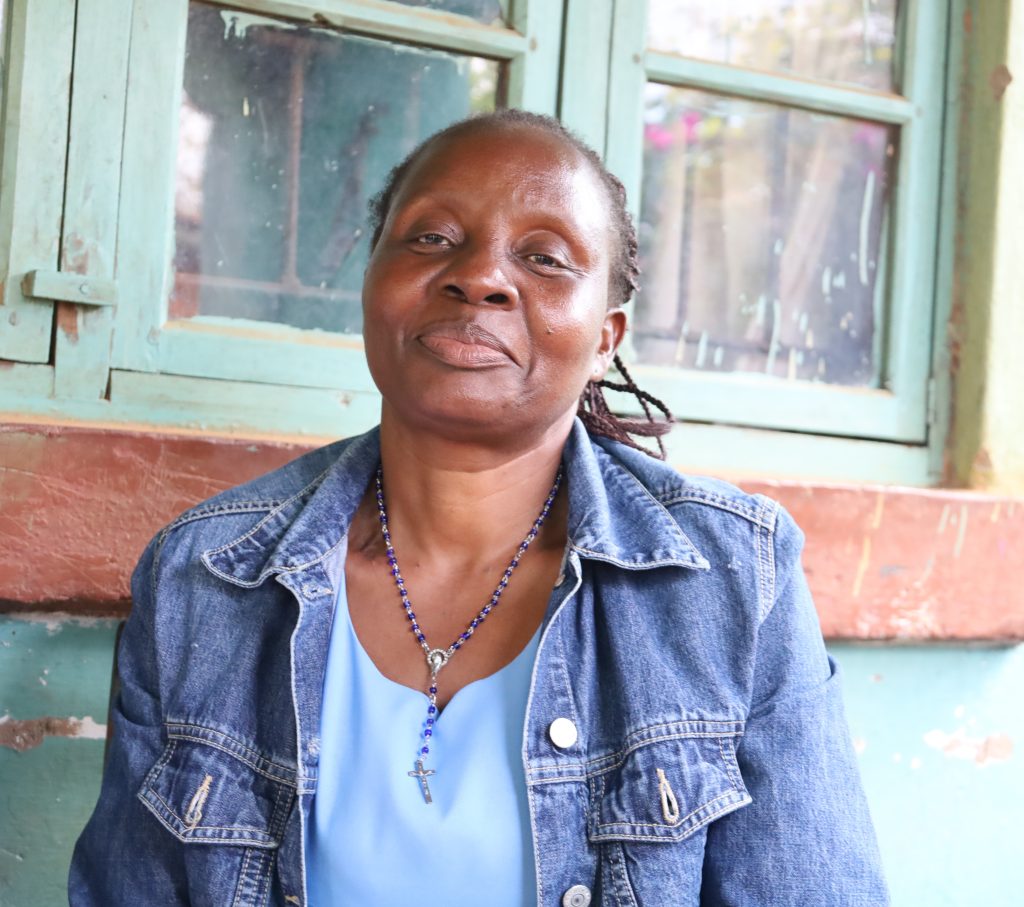Baby Aubrey: Saved by a Community Midwifery Assistant in Malawi
Published on February 22, 2024
By Zainab Chisenga, Knowledge Management & Communications Manager, MOMENTUM Tiyeni project
Nestled between green tea fields and the majestic Mulanje Mountain is Sazikani village in Southern Malawi. Here, 31-year-old Violet Million sits on a chair with her 3-month-old son, Aubrey Bester. Aubrey is a bubbly, smiling, healthy child. However, this was not the situation one day in April. At two-weeks-old, Aubrey developed an extremely high fever and was breathing very quickly, dangerous signs for an infant.

Aubrey was saved by the Community Midwifery Assistant (CMA) who was doing routine home visits of new mothers to check if they are adhering to medical advice. A few days prior to this incident, MOMENTUM Tiyeni, in collaboration with the Reproductive Health Directorate of the Ministry of Health, had trained these CMAs on Community Based Maternal and Newborn Care.
The training targeted 20 CMAs from 10 hard-to-reach facilities in Mulanje and Dowa districts. It is a competence-based training that includes practical sessions and community visits to check on pregnant women and newborn babies in their communities. The goal was to equip them with the requisite skills to identify danger signs in newborn babies and pregnant women in a bid to strengthen maternal and child health in the district.
The Ministry of Health trained CMAs who were deployed in health centers due to critical shortages of staff and inadequate capacity, such as skills and transport, to offer community-based maternal and newborn care. MOMENTUM Tiyeni’s support of the efforts by District Health Management Teams to redeploy CMAs to do Community Based Maternal and Newborn Care as well as providing them with bicycles has gone a long way in saving lives of pregnant women and babies.
On this day, two CMAs came to Violet’s house as part of the training assessment. During the assessment and examination of baby Aubrey, they found his temperature was too high, at 38.2°C (slightly over 100 degrees F) and he had breathing difficulties.
The CMAs advised Violet to take him to the hospital because at the training they learned that fever is a danger sign that requires prompt medical care. Aubrey was immediately taken to Mulanje district hospital and was diagnosed with neonatal sepsis. He was treated and put on a 6-hour observation at the facility, after which he was discharged with medication to be taken for the next two weeks. Aubrey’s mother was also advised to return to the hospital should she observe anything unusual with him.

Aubrey’s mother is grateful for the home visit as she did not think what Aubrey was experiencing was unique or potentially dangerous. She explains, “I thought it was okay although I noticed that he had a high fever. I had returned from the postpartum checkup earlier that same day, so I did not think there was a problem. I assumed if there was one, they would have picked it up at the hospital. I don’t know what would have happened if they did not come for the visit that day. I may have lost my son perhaps.”
Bertha Kanjoka is a Senior Health Surveillance Assistant who accompanied the CMA on this home visit to Aubrey’s home as it falls under her catchment area. CMAs and Health Surveillance Assistants complement each other in managing community health work. Bertha lamented that their jurisdiction is quite big, and CMAs do assist them in reaching areas they would not reach otherwise. She is grateful to MOMENTUM Tiyeni for the training which is already making their work easier than before.

